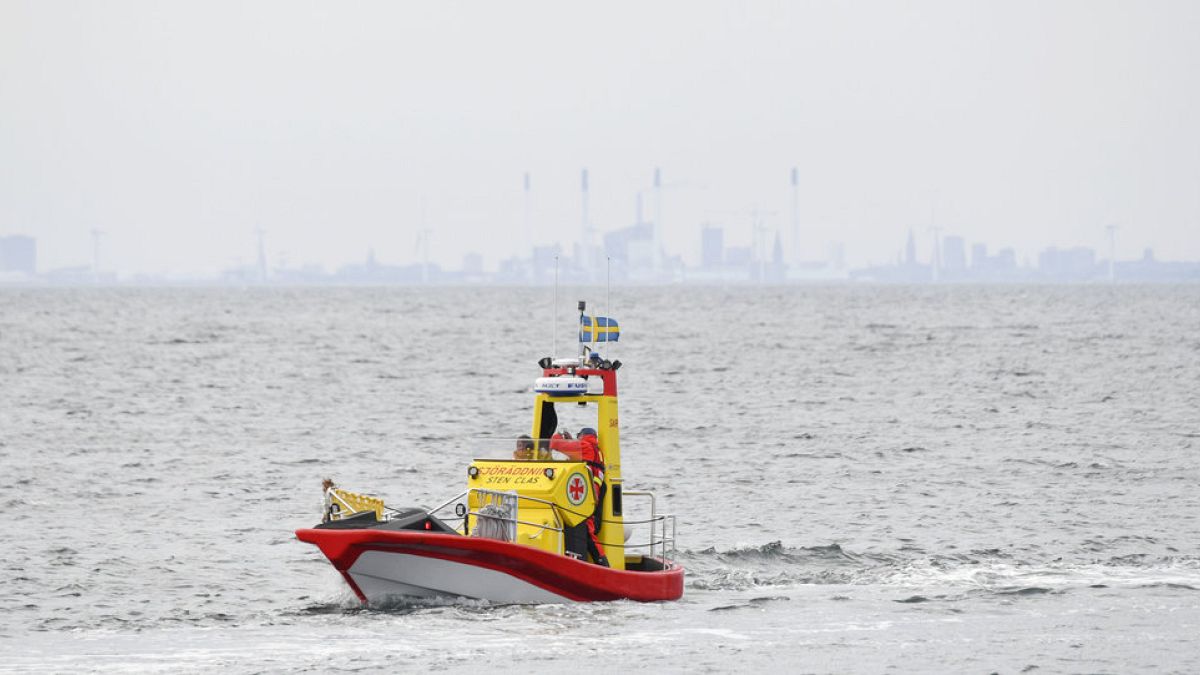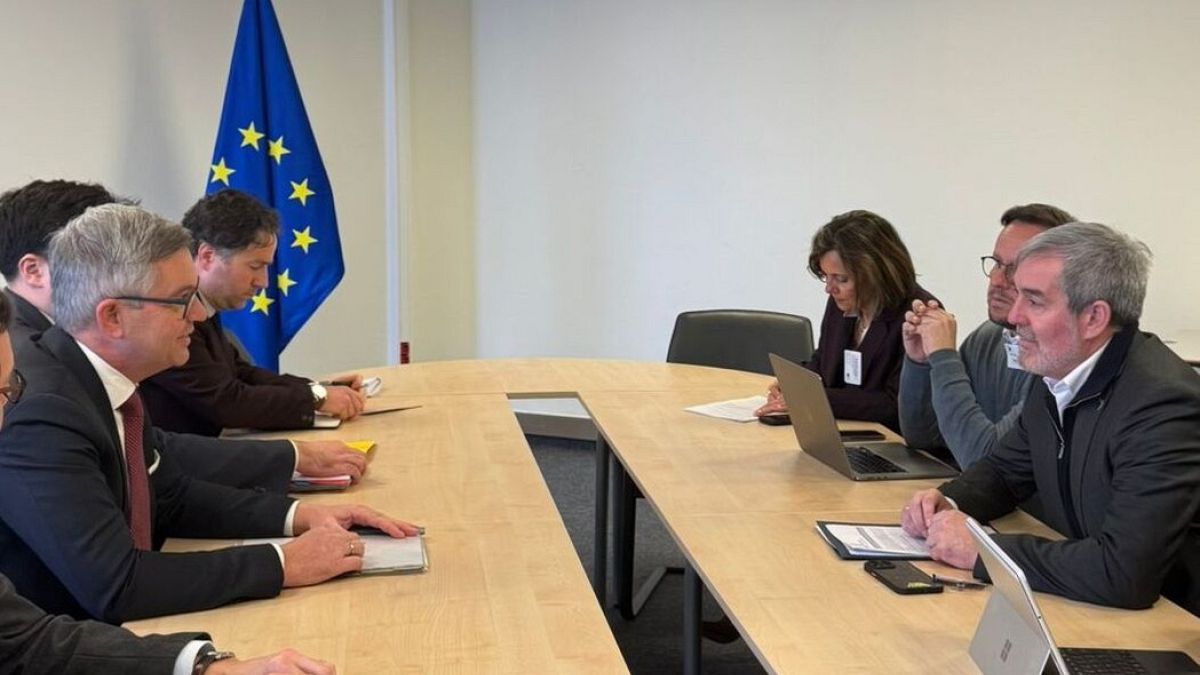World
Brussels vows ‘maximum flexibility’ to help Slovenia after floods
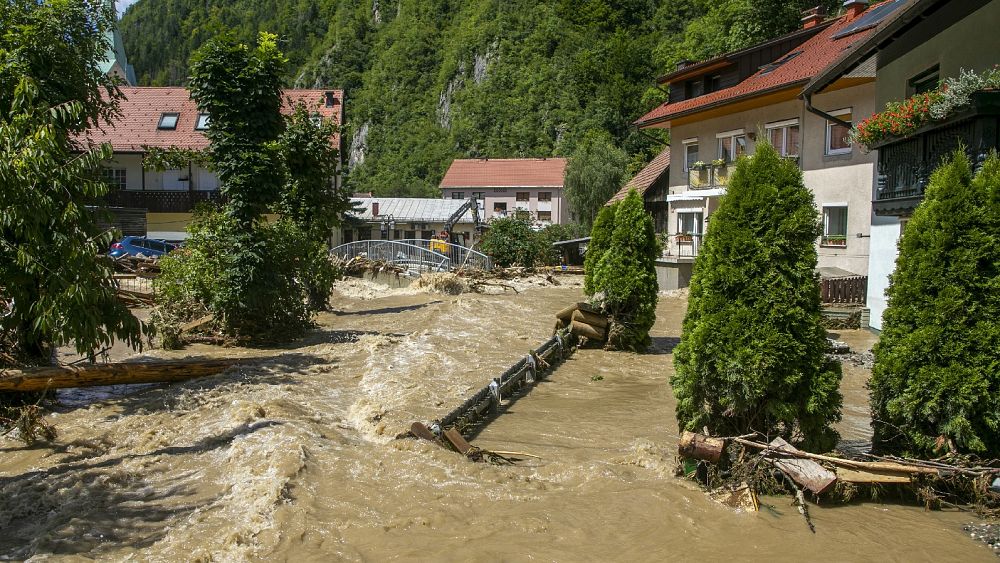
The Eastern European country will be able to repurpose EU funds to cover its immediate and long-term needs after deadly floods unleashed considerable damage.
The European Commission will show “maximum flexibility” and create a special task force to ensure Slovenia gets the funds it needs to rebuild after flooding devastated the country, Ursula von der Leyen said on Wednesday.
“Europe stands by your side,” the Commission president said after visiting the most impacted areas and describing the devastation as “heartbreaking”.
She stressed that European solidarity will extend to financial support to cover the immediate as well as medium- and long-term needs of the country.
A €400 million package is to be made accessible immediately via the EU Solidarity Fund, including €100 million to be disbursed this year with the remainder earmarked for 2024. But to access the money, Slovenia needs to make a request and provide a first damage assessment, the Commission chief said.
Billions can be ‘reprogrammed’
Slovenia can also request the disbursement of the €2.7 billion it still has available under NexGenerationEU, the €800 billion post-COVID stimulus package designed to boost the European economy and make it more resilient to technological and climate challenges.
But von der Leyen stressed that “here too time is of the essence because this request has to be made before the end of August”.
With Slovenian Prime Minister Robert Golob, the Commission agreed to create a task force to work on the requirements to make sure the request is made on time.
The country can also “reprogramme” €3.3 billion of cohesion funds it has allocated until 2027 to deal with the aftermath of the disaster.
“A maximum of flexibility will be needed because a lot has been programmed, for example, in cohesion funds, and I’m convinced that some of the projects are not existing anymore,” she said.
‘Worst-ever natural disaster’
The country of two million inhabitants was hit by severe floods over the weekend following torrential rain on Friday over roughly two-thirds of the country. According to Slovenia’s weather service, a month’s worth of rain fell in less than a day taking the weekly rainfall accumulation in some areas to 200mm.
The flooding has been described as the country’s “worst-ever natural disaster”.
The rain caused rivers to swell and burst, destroying houses, roads and bridges and triggering warnings of possible mudslides.
Six people, including two Dutch tourists, are known to have died, and hundreds were left homeless with roughly 8,000 people in the north and east of the country forced to evacuate.
Slovenia activated the EU Civil Protection Mechanism on 6 August and has so far received assistance from seven fellow EU countries.
France, Germany, Croatia, Austria, Slovakia, the Czech Republic and Italy together provided excavators, mobile bridges, helicopters as well as emergency and engineering equipment and personnel.
NATO, of which Slovenia is also a member, is also sending help. Jens Stoltenberg, the military alliance’s Secretary General, told Slovenia’s prime minister on Monday that “upon Slovenia’s request for assistance, NATO’s disaster response coordination centre immediately notified all 31 Allies and 35 partners of your needs.”
The US has deployed staff to Ljubljana “to assess the situation and determine urgent humanitarian needs”, the NATO statement said.
Von der Leyen is also scheduled to speak to an extraordinary plenary session of the Slovenian National Assembly during her visit to the country on Wednesday.

World
Georgia reacts angrily to EU suspension of visa-free travel
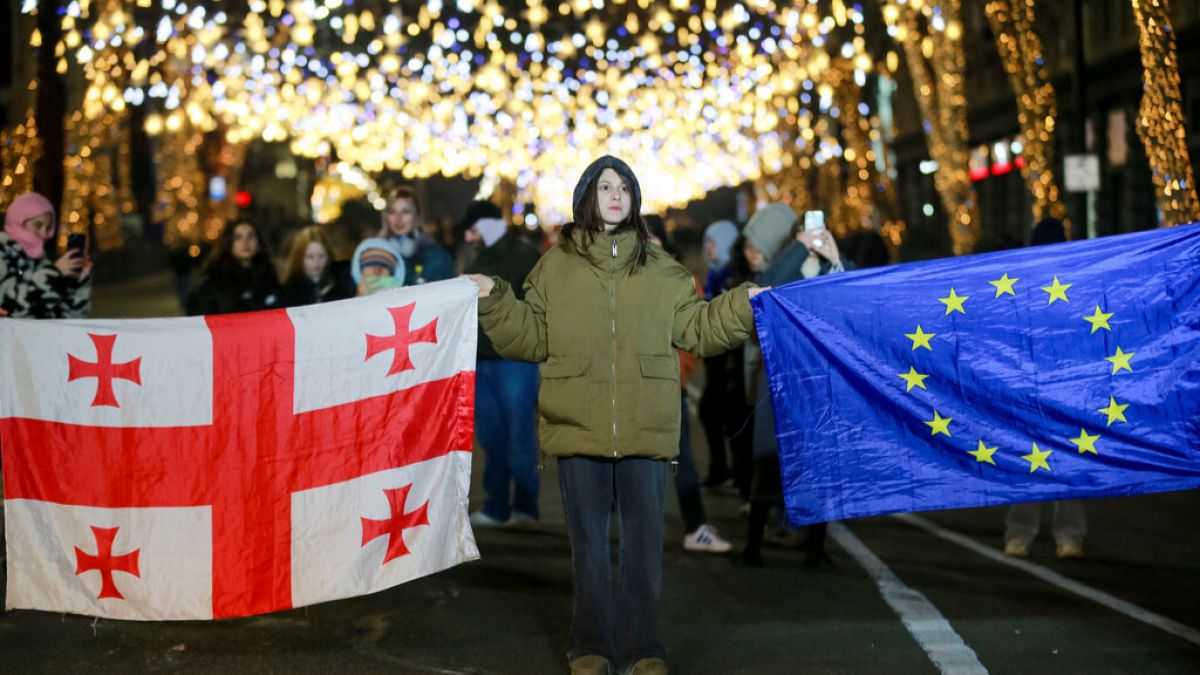
The European Commission had proposed to suspend the visa-free travel regime for Georgian diplomats and officials in response to the violent crackdown on protesters, who took to the streets for weeks to denounce the ruling party’s gradual pivot away from Europe and towards Russia.
Georgia has reacted angrily to the suspension of a mutual visa-free travel agreement by the European Union.
The development may lead to Georgian diplomats and officials having to apply for visas when travelling to an EU member state.
Speaking to Euronews a day after the announcement of the suspension, Georgian foreign minister Maka Botochorishvili called the decision “politically wrong.”
“Legally, it is absolutely groundless and nonsense. There is no proof or explanation how Georgian diplomats are creating threats or threatening public order in the European Union or EU member states,” she said.
“I just think that it is absolutely against European values or something that we refer to very often, and that is very unfortunate.”
‘Intention to be part of the EU’ still there
The decision by the European Council came in response to controversial laws that the Georgian parliament passed last year that undermine basic democratic rights, according to Brussels.
It was described as a reaction to the adoption of controversial Georgian laws on foreign influence and family values.
Polish Minister of the Interior and Administration Tomasz Siemoniak said “fundamental rights and democratic values are core principle of EU integration,” adding that officials from a country “which trample down these values should not benefit from easier access to the EU.”
Botchorishvili rejected this notion – stressing Georgia’s willingness to pursue its path to EU membership.
“Georgia has been a dedicated partner for the European Union and that is not just empty words,” she said, adding that her country “is there with this intention to be part of the European Union. And we are very serious about that.”
Following a decision of the Georgian government in November 2024, the opening of negotiations with the EU about membership is suspended until 2028.
World
Jon Stewart Slams Democrats for Panicking About Donald Trump’s Executive Orders, Calling Him ‘Un-American’ and ‘Authoritarian’ When They Should Be Providing Solutions

On this week’s episode of “The Daily Show,” Jon Stewart slammed Democrats for calling Donald Trump “un-American” and “authoritarian” for signing a flurry of executive orders during his first week in office when in reality he is operating within his constitutional rights as president.
Stewart opened the segment with a compilation of news outlets ringing the alarm on a Friday night “purge” executed by Trump.
“Ah! Trump has ushered in the purge,” Stewart yelled, pulling out a foam axe from under his desk. “Although, just in case I’m misinterpreting, what is this purge about, exactly?”
Another news compilation then played, clarifying that Trump had fired at least 17 “government agency watchdogs” known as “inspectors general” on Jan. 24.
“No! He got rid of 17 inspectors general? That only leaves… No one knows how many left,” Stewart joked. “Who knows how many generals will now go uninspected? Democrats, inspire my anger, in the least charismatic way possible!”
Stewart then ran a clip of Democratic Senator Chuck Schumer labeling Trump’s removal of the “inspectors general” a “glaring sign” that a “golden age for abuse in government and even corruption” is upon us. However, “The Daily Show” host was quick to point out that Trump has the legal right to remove any such government agent at any time. The only thing Trump failed to do was provide 30 days’ notice and a comprehensive list of reasons why.
“I’m sorry, what? Apparently, you can fire them but you have to give them 30 days’ notice. That is what we are upset about?” Stewart said. “But this is the cycle we find ourselves in. First law of Trump-o-dynamics: Every action is met with a very not-equal overreaction. Thus throwing off our ability to know when shit is actually getting real. Like last week’s pardons.”
Clips played of liberal pundits attacking Trump’s pardons as “unconstitutional,” “authoritarian” and “un-American.” Once again, Stewart noted that it is a president’s constitutional right to grant pardons.
“For some reason, we have given presidents the power of a king, and then we say, ‘Well, you’re not going to get all kingly and shit on us, right?’ To put that in constitutional terms, if I could, don’t hate the player, hate the founding fathers,” Stewart said. “Because I don’t know if you’ve met Donald Trump, he pushes shit.”
Stewart closed the segment with a call to action for Democratic leaders: “The question is probably not, ‘How dare he?’ The question should be, ‘What are you learning from this? How would you use this power? What is your contract with America?’ Democrats, exist outside of him. Tell people what you would do with the power that Trump is wielding, and then convince us to give that power to you as soon as possible! That is the goal!”
Watch the full segment below.
World
A weakened Iran has Iraq looking to curb Tehran-backed extremists in country
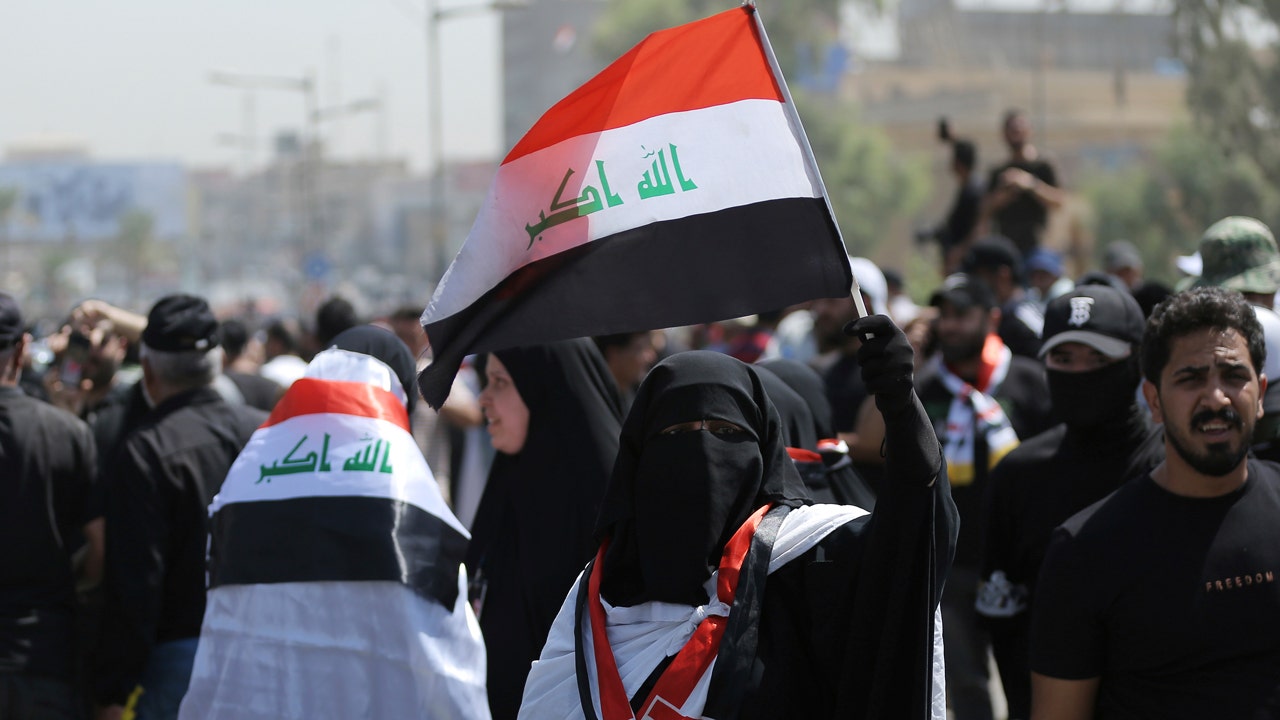
With Iranian influence waning in the Middle East, the Iraqi government wants armed groups, including factions within the Iran-backed Islamic Resistance in Iraq (IRI), to lay down their arms and join the state security forces or integrate into the state-recognized Popular Mobilization Forces.
Iraq’s foreign minister, Fuad Hussein, recently told Reuters that armed groups operating inside Iraq and outside state control are unacceptable.
“Many political leaders, many political parties started to raise a discussion, and I hope that we can convince the leaders of these groups to lay down their arms, and then to be part of the armed forces under the responsibility of the government,” Hussein told Reuters.
US, IRAQI FORCES UNLEASH AIRSTRIKE ON ISIS TARGETS, KILL TERRORISTS HIDING IN CAVE
There is also fear around the region, with the power vacuum left by the fall of Bashar al-Assad in Syria and a decimated Hamas in Gaza and Hezbollah in Lebanon, that Iraq may be next to fall.
Jonathan Schanzer, executive director at the Foundation for the Defense of Democracies, told Fox News Digital that the collapse of the Assad regime was the precipitating moment for the Iraqi government to make its move against Iranian militias.
An Iraqi flag is flown at a protest. (AP Photo/Anmar Khalil)
“Right now, the Iraqis are wondering if they are next and everyone is fearful of the toxic influence and corrosive nature of Iranian influence in the state,” Schanzer said.
Foreign Minister Hussein told Reuters that he does not think Iraq is the next domino to fall.
The IRI is a group of armed Islamic resistance factions under the umbrella of the Iran-backed “Axis of Resistance.” These groups are the most difficult for the Iraqi government to manage and were responsible for the attack that killed three U.S. service members in Jordan in January 2024. The IRI is aligned with Iran and has been engaging in armed operations against Israel and U.S. coalition forces since Oct. 7.
WHO IS THE IRAN-BACKED COALITION ISLAMIC RESISTANCE IN IRAQ, RESPONSIBLE FOR DEADLY DRONE STRIKE ON US TROOPS?
Also operating in Iraq are the Popular Mobilization Forces (PMF). The PMF was formed in 2014 after Iraq’s Shia cleric, Grand Ayatollah Ali al-Sistani, called for Iraqis to rise up and fight against the Islamic State. Tehran sent IRGC advisers, weapons and other military support to the PMF to combat ISIS, according to the Defense Intelligence Agency.
The PMF are formally recognized as an official part of the Iraqi state security forces and report directly to the prime minister.
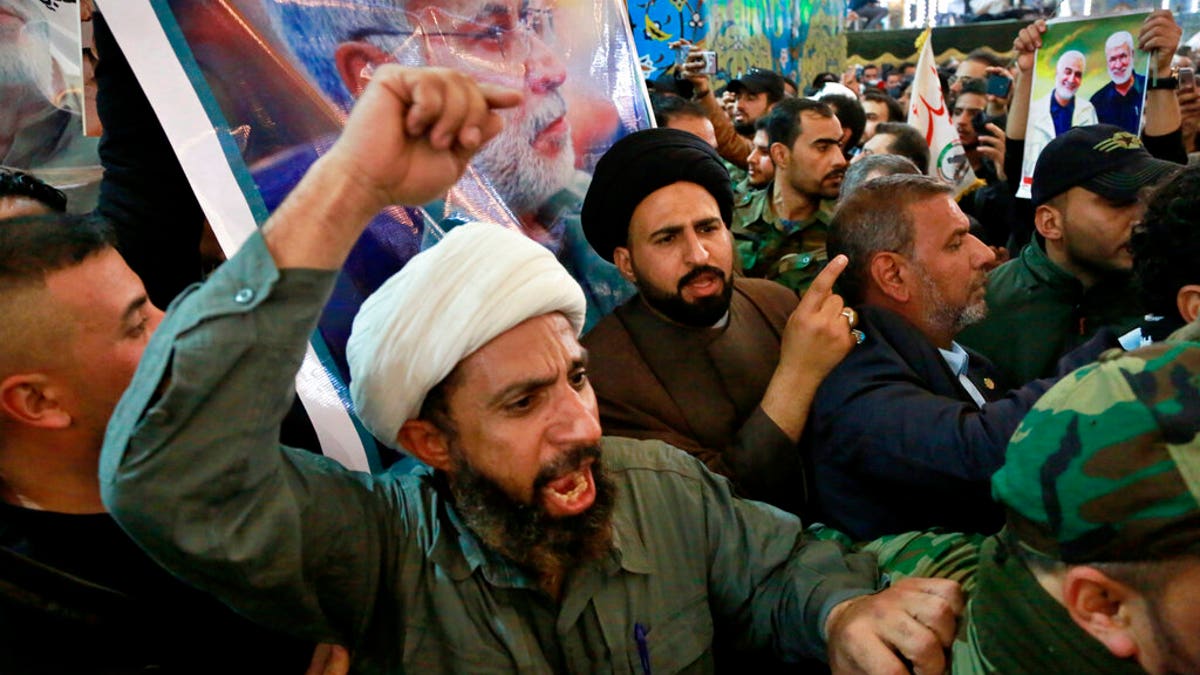
Mourners chant slogans against the U.S. during the funeral of Iran’s top general, Qassem Soleimani, and Abu Mahdi al-Muhandis, deputy commander of Iran-backed militias in Iraq known as the Popular Mobilization Forces, in the shrine of Imam Hussein in Karbala, Iraq, on Saturday, Jan. 4, 2020. (AP Photo/Khalid Mohammed)
“Current discussions revolve around how to effectively manage the so-called Islamic Resistance factions, some of which have gained media prominence since Oct. 7 while conducting armed operations under the label of Islamic Resistance in Iraq,” Inna Rudolf, who studied the PMF at King’s College London, told Fox News Digital.
Many of these resistance factions, Rudolf said, have also registered brigades within the state-recognized PMF umbrella.
“The question for decision-makers remains how to neutralize these elements and mitigate the risk of dragging both the PMF and the Iraqi state into a poorly timed geopolitical escalation,” Rudolf said.
NETANYAHU HAILS ‘HISTORIC’ FALL OF BASHAR ASSAD IN SYRIA, CREDITS ISRAELI ATTACKS ON HEZBOLLAH, IRAN
Rudolf pointed out that although Iranian proxies have been significantly weakened since Oct. 7, pressure has intensified in light of reports suggesting Israel could retaliate against Iranian groups inside Iraq.
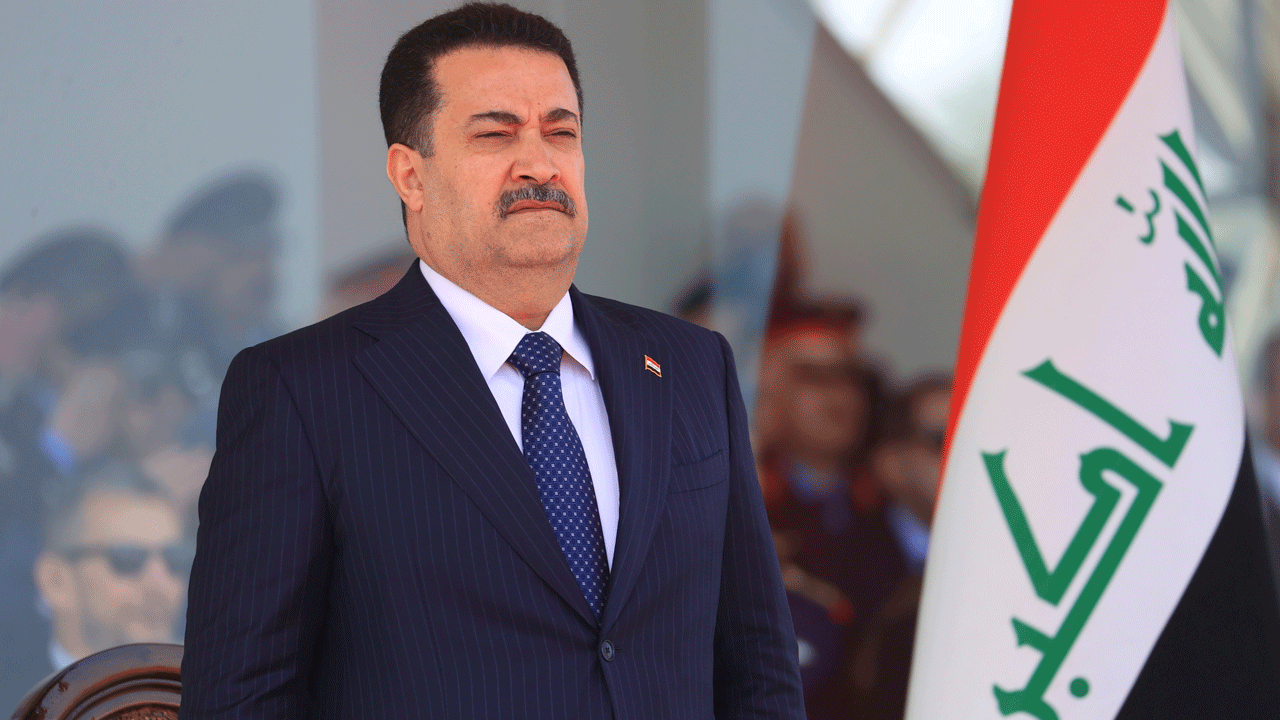
Iraq’s Prime Minister Mohammed Shia al-Sudani attends a ceremony in Baghdad, Iraq, on Jan. 9, 2024.
Many observers of the region think Iraq’s attempt to rein in armed factions at this moment is a sign of Iran’s diminished position in the region.
“The fact that major security sector reform in respect to the Popular Mobilization Forces is being conducted at this time is representative of Iran’s weakened role in the country and an imperative amongst more moderate forces, as well as the U.S., to seize on this and create momentum,” Caroline Rose, a senior analyst and head of the Power Vacuums Program at the New Lines Institute, told Fox News Digital.
CLICK TO GET THE FOX NEWS APP
Elections in Iraq are scheduled for this fall, and Prime Minister Sudani is attempting to negotiate an acceptable form of bilateral security cooperation with the U.S., including the status of U.S. forces inside the country. The U.S. currently has about 2,500 troops serving in Iraq as part of the anti-ISIS Operation Inherent Resolve effort.
Observers of the region agreed that if Iraq is unable to demonstrate its ability to rein in rogue groups conducting armed operations against the prime minister, sustaining security cooperation with the United States, especially under President Donald Trump, could be impossible.
-

 Culture1 week ago
Culture1 week agoBook Review: ‘Somewhere Toward Freedom,’ by Bennett Parten
-

 Business1 week ago
Business1 week agoOpinion: Biden delivered a new 'Roaring '20s.' Watch Trump try to take the credit.
-

 News1 week ago
News1 week agoJudges Begin Freeing Jan. 6 Defendants After Trump’s Clemency Order
-

 Business5 days ago
Business5 days agoInstagram and Facebook Blocked and Hid Abortion Pill Providers’ Posts
-

 News3 days ago
News3 days agoHamas releases four female Israeli soldiers as 200 Palestinians set free
-
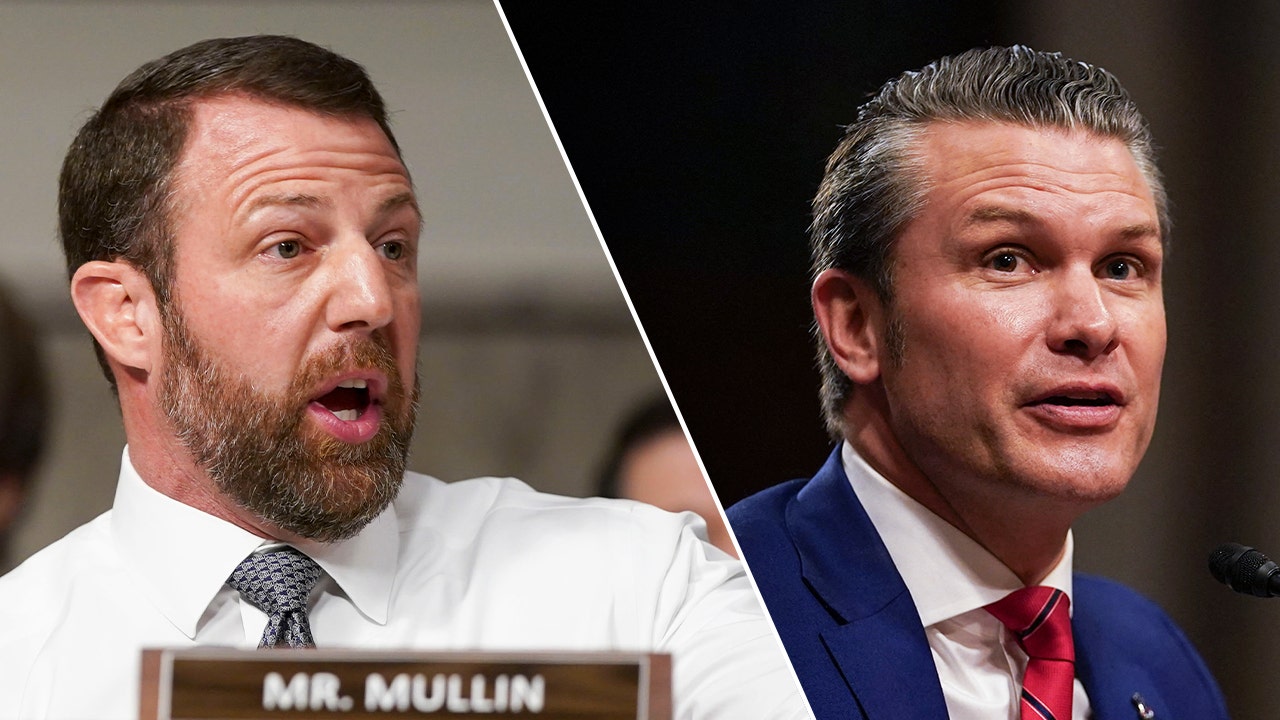
 Politics4 days ago
Politics4 days agoOklahoma Sen Mullin confident Hegseth will be confirmed, predicts who Democrats will try to sink next
-

 World3 days ago
World3 days agoIsrael Frees 200 Palestinian Prisoners in Second Cease-Fire Exchange
-

 News1 week ago
News1 week agoA Heavy Favorite Emerges in the Race to Lead the Democratic Party
